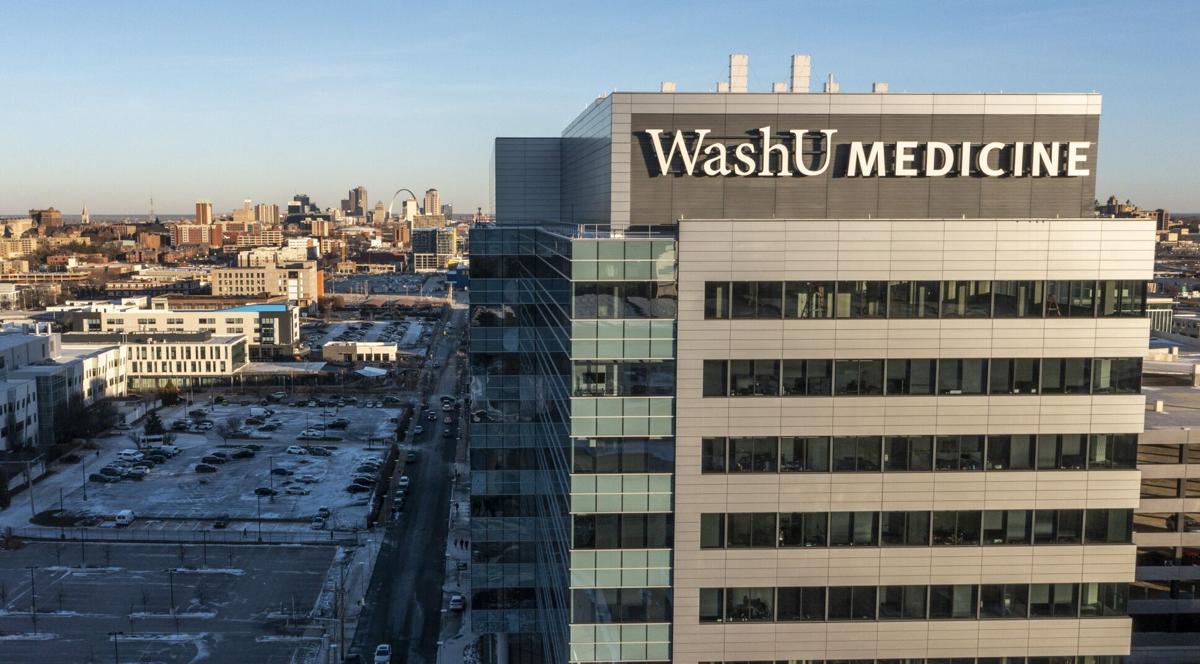A coalition of universities, businesses, heath care providers and others have been working for the past several years to transform St. Louis into a global leader in neuroscience research and services.
The effort, dubbed Neuro360 and anchored by Washington University and bioscience booster BioSTL, relies on receiving a $160 million federal grant from the National Science Foundation to fully bring the vision to life. After two years of planning, in April the group submitted its application for a Regional Innovation Engines grant.
But since taking office, the Trump administration has cut millions in research grant dollars and reduced federal spending across agencies in a push to improve government efficiency, and to stop efforts that boost diversity, equity and inclusion.
“That money would be catalyzing, for sure,” said Justin Raymundo, BioSTL’s vice president of building innovation ecosystems. “All of that money can help us power activities to really serve as the foundation for St. Louis’ position as a global leader.”
People are also reading…
Raymundo said the $160 million Engines grant money would fund workforce development programs and proofs-of-concept on technology, help build companies, advance research at WashU and create career pathways into neuroscience jobs. Neuro360 has already received a related $1 million planning grant from NSF.
BioSTL knew there would be potential changes in federal priorities as Donald Trump took office in January, and once Trump began issuing anti-DEI orders, Raymundo said BioSTL reviewed the language in its programming and grant application.
None of their programs were explicitly race- or gender-based, he said, but officials kept close track of how NSF grants and federal agencies were being affected as cuts by Trump and Elon Musk’s Department of Government Efficiency unfolded.
More than 1,400 National Science Foundation grants have been terminated nationwide and the agency recently notified staffers that it will “stop awarding all funding actions until further notice,” according to the scientific journal . And earlier this month, the NSF said that it will reduce federal research funding at academic institutions.
Neuro360 participants say they’re optimistic that funding for the “Regional Innovation Engines” program will survive. Both sides of the political aisle want the U.S. to be a leader in technology and the Engines program has its own line item in the NSF’s proposed 2025 budget, Raymundo said. The program was authorized by the CHIPS and Science Act, which saw bipartisan support when it was passed by Congress and signed into law in 2022.
“Even if you look at what the Trump administration prioritizes, they still prioritize these key technology areas,” Raymundo said. “They still prioritize America leading in these technology areas. One of the mechanisms [to do that] is through this program, so that’s why I just have confidence that it makes a lot of sense.”
When reached, NSF declined to comment on its Regional Innovation Engines program.
Hopeful, but preparing
Heidi Lucas, executive director at Missouri Rural Health Association, a partner of Neuro360, said that she is excited about the project, but very concerned about the availability of federal funding. The past weeks have felt like a “slow-moving trainwreck,” she said.
“It would setback research not only for this, but research for decades,” Lucas said if the NSF Engines money was cut. “That hopefulness we have in the nonprofit [world] — ‘it’s all going to work out’ — I don’t necessarily know if that will be the case or not.
“We’re preparing for the absolute worst,” she said.
Neuro360 leaders say that St. Louis will work to become a global leader with or without the federal money, though, “it will obviously need to be changed in size and scope and scale,” Raymundo said.
But BioSTL is already doing much of what’s outlined in the Neuro360 plan. BioSTL currently offers a shared wet lab space to researchers, funds accelerator programs to build businesses, recruits talent to St. Louis and provides capital for startups.
The region has seen massive investment in its neuroscience scene. Neuro360 has built a group of more than 50 partners who have already committed over $60 million in resources, such as staff time, mentoring, equipment and more.
And last year, WashU unveiled a $616 million Neuroscience Research Building, touted as one of the largest in the world. Last December, the school announced that Enterprise Mobility Executive Chairman Andrew Taylor and his wife, Barbara Taylor, had donated $50 million to the neurosurgery department, which makes up the bulk of the $60 million committed in resources.
Natalie Self, senior vice president of equitable economic impact at the Cortex Innovation District, another partner of the Neuro360 effort, is adamant that Neuro360’s vision will happen in the region, no matter what.
“This grant, from day one, has not been a shoo-in,” Self said. “I don’t know what’s going to happen. I am confident that we have done everything possible to get the funding.”
In late April, Neuro360 hosted a symposium for St. Louis science leaders. There, BioSTL founding president and CEO and BioGenerator chairman Donn Rubin echoed Self’s sentiment and told attendees that Neuro360 is forging ahead.
“With or without the NSF grant, we are going to make this plan happen,” Rubin said. “We’re going to be entrepreneurial and innovative and identify resources to implement various parts of the plan, but our goal still is to win this thing.”
“Whatever the next steps are that come from the NSF, all together we will be ready,” he said.
Post-Dispatch photographers capture hundreds of images each week; here's a glimpse at the week of May 4, 2025. Video edited by Jenna Jones.









